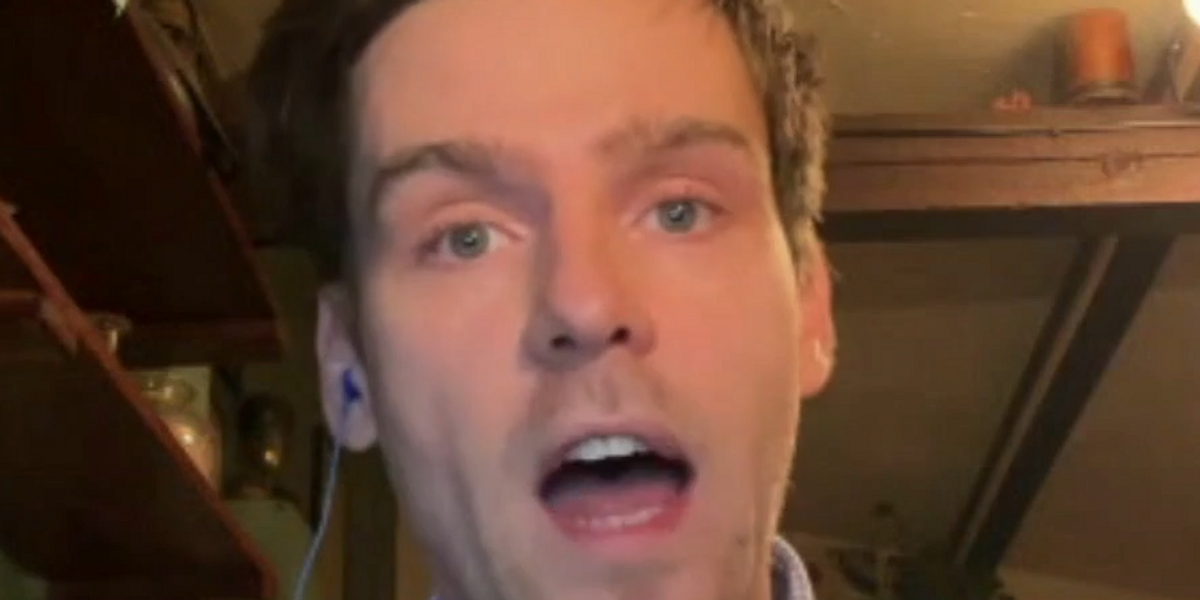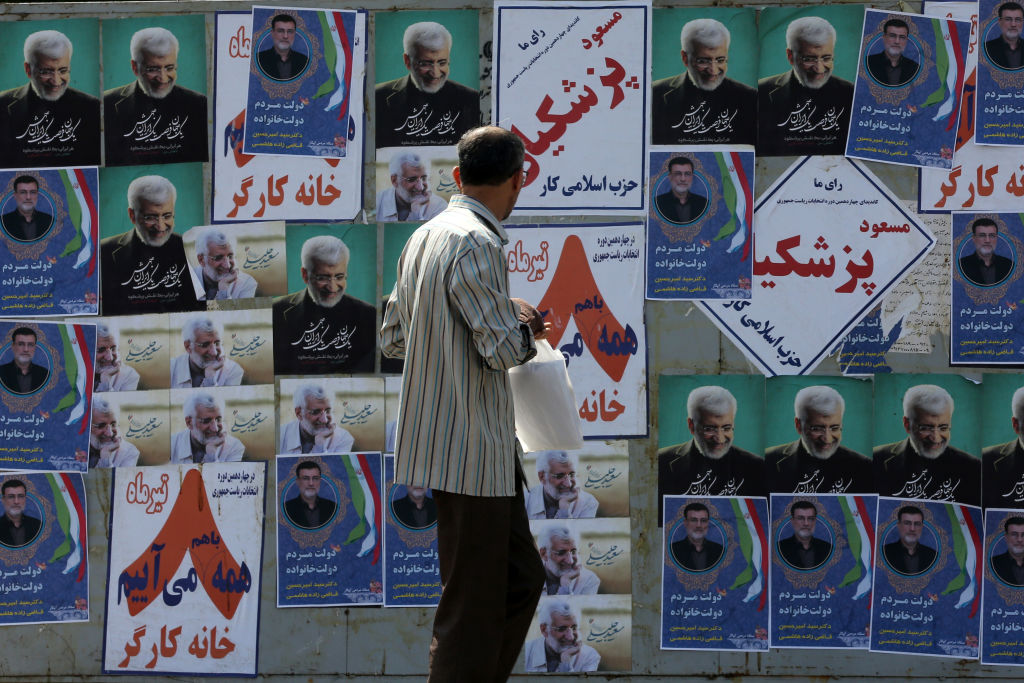A key finding of the survey was how different sectors of the Israeli public value the haredi contribution to the war effort.
By RAQUEL GUERTZENSTEIN FROHLICH JANUARY 2, 2025 14:17 Haredi demonstrators hold signs while protesting against IDF enlistment, August 5, 2024.
(photo credit: Via Maariv)
Haredi demonstrators hold signs while protesting against IDF enlistment, August 5, 2024.
(photo credit: Via Maariv)
Support has risen in the past year among the non-haredi Israeli public for policies that would increase the number of haredi youth who are drafted into the military to reduce the burden on serving populations, according to research presented by the Israel Democracy Institute at their annual conference on Monday and Tuesday.
The new survey results were compared to a January 2024 survey. The survey was conducted in November and had a maximum sampling error of ±3.56%, and the findings were based on a representative sample of the adult population in Israel, including 756 respondents, according to the statement.
The survey was conducted by Shlomit Ravitsky Tur-Paz, the director of the IDI’s Joan and Irwin Jacobs Center for Shared Society, and the IDI’s Viterbi Family Center for Public Opinion and Policy Research.
Among the questions posed was, “It is already recognized that due to the war, there is a need for the IDF to increase its manpower, including by extending the service of those in the standing military and those in the reserves. Do you think this should impact the policy on conscripting members of the ultra-Orthodox community?”
Of non-haredi respondents, 81% support a change in policy, compared to 65% in January. The majority (57%) of haredi respondents did not think the policy regarding haredi enlistment should change because of the increased security burden, the report noted, and 21.5% do think the policy should be adjusted.
The haredi contribution to the war effort
Respondents were also asked about the “right solution” for haredi conscription into the army.
Those supporting haredi conscription (either comprehensive or via allotments) rose from 67% in January to 84.5% in November, according to the report. Half support all young ultra-Orthodox individuals being drafted—aside from a small amount of exceptional cases—and 34% support allotments with economic penalties for non-compliant people.
Another key finding of the survey was how different sectors of the Israeli public value the haredi contribution to the war effort.
In November, 59% of the non-haredi public felt that the haredi sector was not contributing to the war effort, or their efforts were minimal. A third (35%) believed their contributions were significant or very significant, the report stated.
Broken down by level of religiosity, the opinions of national and traditional religious respondents on haredi contributions to the war remained almost unchanged from January to November, according to the report.
Stay updated with the latest news!
Subscribe to The Jerusalem Post Newsletter
At the IDI conference in Jerusalem earlier this week, where the findings were presented, Israeli officials and leaders from various sectors of society also came together to discuss issues such as Israel’s education system as well as the haredi community’s contributions during the war, according to a statement from the institute.
On the first day of the conference, former president of Israel Reuven Rivlin and IDI President Yohanan Plesner discussed the state of Israeli solidarity and social cohesion, and judges and education experts debated the future of the country’s education system in a mock trial.
Rivlin, who is the honorary chair of IDI and a Joan and Irwin Jacobs Distinguished Fellow, stated, “October 7th proved to us all, whether we like it or not, that we can live as ‘tribes’ only if we have a state that supports all of us. A state that can protect us in terms of security and provide us with all those things a proper society provides. We must see ourselves as part of the cogent state, even while we live alongside one another as communities.”
In Israel, Jews of all denominations are interconnected and “stand in solidarity with one another,” Rivlin stated.
“There is no doubt that today, Jews worldwide and the State of Israel see eye to eye.” he said. “We do not live just in Israel as four “tribes,” but as a people with five “tribes.” You may not realize how much the Jewish world does for the State of Israel and for those harmed here in Israel during these trying times.”
Democrats MK Naama Lazimi said those maintaining a “unique way of life” should be legitimately recognized.
“However, our wilful blindness to the neglect of equal opportunity in education for children, just because they supposedly have their own leadership is unacceptable,” Lazimi said. “This leadership should not condemn them to an inability to realize their potential. Ultimately, these two issues are interconnected. Our duty is to create a shared Israeli identity, but it cannot emerge by excluding an entire community from all educational and government frameworks.”
Meir Shimoni, the director general of the Education Ministry, said today there are about 40,000 students in more than 440 institutions within the public haredi school system.
“Most haredim want to integrate into society, to learn, join the academia, and participate in the workforce, one way or another,” Shimoni said. “We need to know how to provide the tools and pave the way for them to reach via the main road, just like everyone else.”
MK Yitzhak Pindrus, chair of the United Torah Judaism Knesset Faction, stated, “We are always discussing tolerating haredim. Perhaps it’s the haredim who are tolerating those who are different from their community? I never truly felt tolerated. I felt political arm wrestling, in all areas. Maybe we need a Jewish state with more Jewish laws, perhaps the Ten Commandments should play a greater role?”
On the second day, various in-depth sessions were held to discuss potential haredi IDF enlistment and its implications for haredi communities and other sectors that already serve.
Iris Haim, the mother of hostage Yotam Haim–who was mistakenly killed alongside two other hostages by the IDF—brought the conference to a close on its second day.
“I say we have personal responsibility,” Haim said. “Each person is responsible to investigate and learn whether these divisions and rifts truly exist in reality. I think that if we’re talking about democracy, clearly, the ordinary citizen has immense power. Anyone can come and speak in the Knesset and take action. We haven’t created the mechanisms within ourselves that connect us, and instead, we rely on the very institutions that we renounce.”
Ravitzky Tur-Paz, who conducted the survey, said the two days of the conference were “intense and fascinating” and that a diverse group of participants were together able to discuss issues that are “divisive and painful” for Israeli society.
“As we enter 2025, it is my wish that Israeli society as a whole will do the same: listen to each other and hear the pain, even when we disagree,” Ravitzky Tur-Paz said. “The gaps are often very large, and the solutions seem far from reach—but we must take the first steps. These steps include speaking openly and honestly, looking each other in the eye, and from there, progressing together towards a solution.”

 By The Jerusalem Post (World News) | Created at 2025-01-02 12:25:05 | Updated at 2025-01-08 21:56:03
6 days ago
By The Jerusalem Post (World News) | Created at 2025-01-02 12:25:05 | Updated at 2025-01-08 21:56:03
6 days ago








